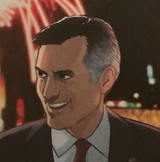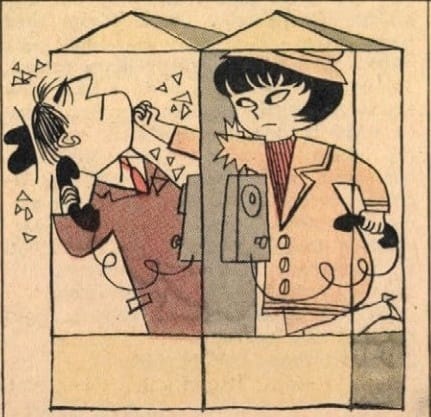Always Take the Bike Tour - Part 2
23 March, 2023 | Santiago Chile
Rolling back to Bellavista, most of the tour ended up at lunch together at the good but otherwise unremarkable restaurant next door. Carlos the tour guide saved us from a debate on venue by helpfully handing us a free drink ticket each.
Back on the bikes, our new guide was named Ama.
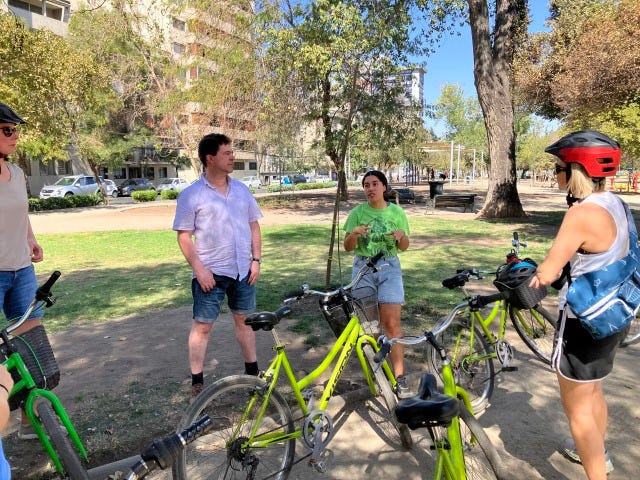
This tour was more focused on politics - particularly recent politics. Ama was a student who could give a first hand account about the protests that rocked Chile in 2019. In brief:
- Chile elected a socialist President named Salvador Allende in 1970.
- Allende started implementing the programs he was elected on: nationalization of large scale industries, national healthcare and education, public works projects etc.
- US president Richard Nixon did not like the look of this nation in South America growing closer to Cuba and telling its international creditors to fuck off.
- With substantial US backing, Allende was deposed and murdered; with General Augusto Pinochet taking power.
- Pinochet ran a brutal military dictatorship that resulted in thousands of murders, disappearances, and widespread torture. Everything was privatized - schools, healthcare, water, etc.
- In a sweetheart deal, Pinochet left the presidency in 1990 but basically remained in power (Senator for Life, head of the military) well into the 2000s.
Chile still has the constitution Pinochet basically wrote when he took power, Ama explained. This, and a series or right-leaning rulers since Pinochet, caused widespread discontent. The straw that broke the camels back took the form of a small increase in the cost of transit - small, but they had been raised, and raised and raised again.
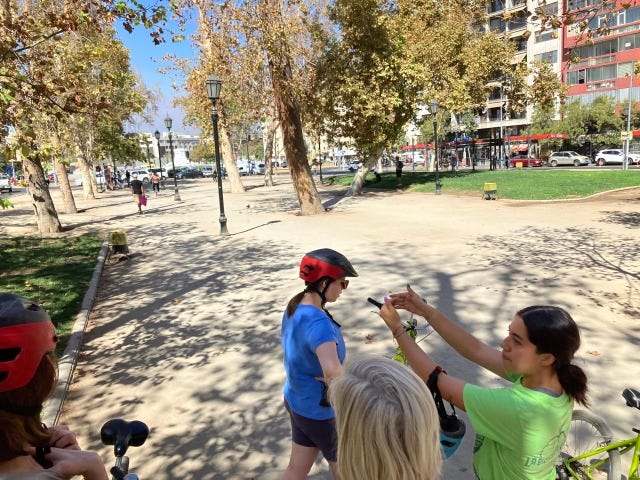
Students poured into the subway entrance above and forced open the gates. Ama was there. She described a police response that bordered on homicidal. But the protests persisted and grew. More than 1.2m people marched in early October 2019. Only a national referendum on whether or not to replace the constitution eventually dissipated them.
The referendum was approved, a new constitution was drawn up, but another vote rejected it. They are trying again, this time with some “experts” starting the process. Given nothing had changed - the Constitution of 1980 was still the law of the land - I asked Ama why protests had not resumed.
“Exhaustion” she said.
I could certainly understand that. It’s not like the police in the United States have gotten any less murderous or any better at preventing violence; one need only point to Uvalde.
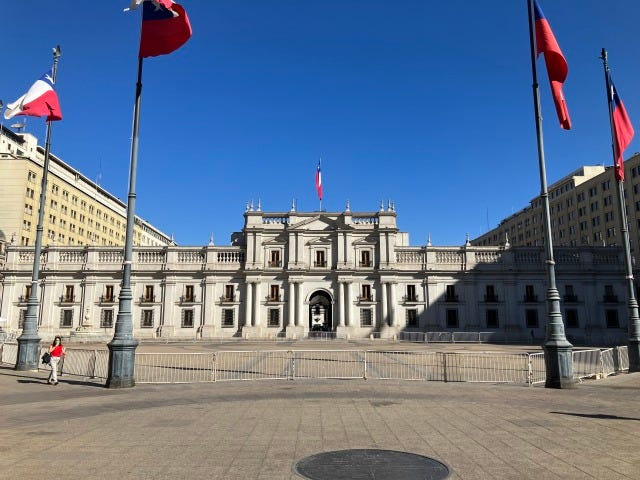
We visited the site of the coup d'état - the presidential palace - as our last stop.
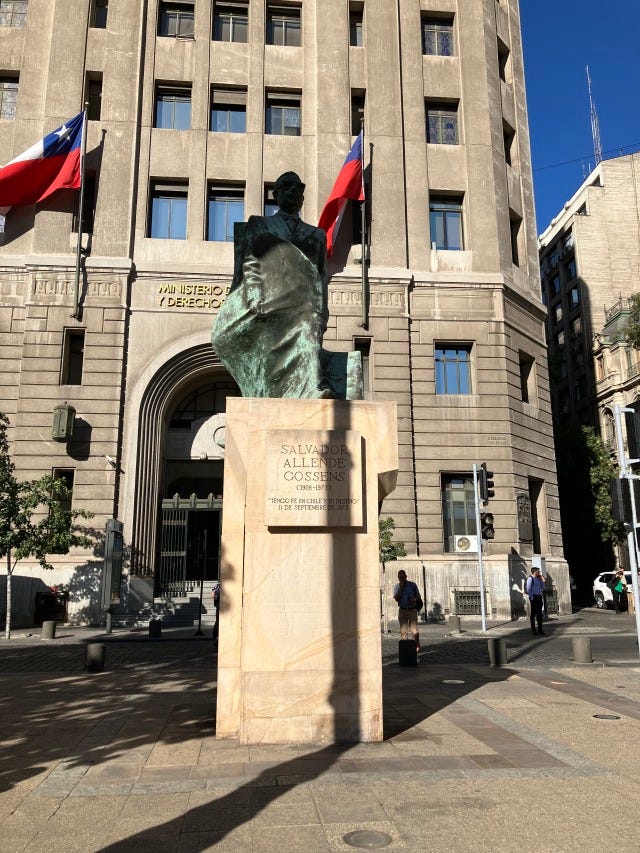
Statues of former presidents are placed throughout the courtyard. This was most recent addition.
Biking back through the dense city center, I was struck by a feeling of nostalgia. Here I was, more than 6000 miles away from Seattle, but the broken disconnected biking infrastructure and truly awful drivers were all too familiar.
Once we were back, I joined two of the other tourists at a local pub. The pub was delightful and well stocked with a variety of beers using exclusively local ingredients. My companions for this outing were Marcel - a dutch airline pilot here an extra day after a conference, and Mira - a german automotive engineer. Given our technical backgrounds, it was about three beers in before we managed to get into engineering-related disasters in an insane amount of detail. Marcel went deep on the Boeing 747 MAX debacle, Mira on the Volkswagen emissions scandal, and of course I got to talk about Silicon Valley Bank.
A great time was had, and I learned a bit of a lesson trying to keep up with Nederlanders on the beer front, but I’ll add one thing I was particularly struck by: the connection both of these folks had to Ukraine. While the United States has been relatively untouched, Marcel’s family had taken in refugees. Mira was originally from Ukraine and still had quite a few family and friends there. It’s easy to find our exposure to a distant war to be limited to a few friends with closer connections and some headlines; but to Europeans it is quite literally next door.
